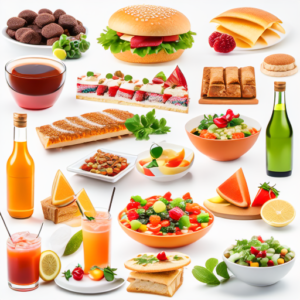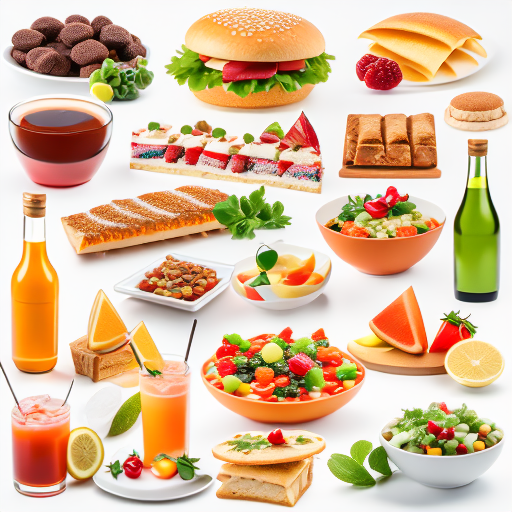Did you know that over 3,000 Canadians are diagnosed with cancer every week? Cancer-Causing Foods It’s a sobering statistic, and while not all cases can be prevented, adopting a healthier diet and avoiding certain foods can significantly reduce your risk. Many cancer patients face grueling treatments like chemotherapy, which can cause severe side effects such as nausea, vomiting, and hair loss. Taking preventive measures through diet is a step toward better health.
Let’s take a closer look at 12 foods linked to cancer risk that you should consider cutting from your diet.

1. BPA-Lined Cans
Many canned foods are lined with Bisphenol A (BPA), a chemical linked to cancer, infertility, obesity, and diabetes in studies. While some research suggests current BPA levels may be safe, overexposure can cause significant health problems, including hormone disruption and heart disease. Opt for BPA-free products whenever possible.
2. Smoked Foods
Smoked meats contain nitrates and nitrites, which convert into harmful compounds like nitrosamines when cooked. These compounds are linked to an increased risk of stomach cancer, infections, and other health issues. If you enjoy smoked flavors, try seasoning or marinating your meat as a safer alternative.
3. Farmed Fish

Farmed fish, often fed unnatural, high-corn diets containing pesticides and chemicals, lack the natural omega-3 fatty acids found in wild fish. Cancer-Causing Foods These pollutants can pose health risks, including an increased cancer risk. Opt for wild-caught fish instead.
4. Grilled Meat
Cooking meat over open flames produces carcinogenic compounds called heterocyclic amines (HCAs) and polycyclic aromatic hydrocarbons (PAHs).Cancer-Causing Foods These chemicals, linked to cancer in animal studies, form when meat is charred. Reduce your exposure by grilling at lower temperatures and avoiding burnt portions.
5. Hydrogenated Oils
Hydrogenated oils, processed to extend shelf life, contain trans fats that promote inflammation and immune overactivity. Linked to breast cancer, heart disease, and diabetes, these oils should be replaced with healthier alternatives like olive or avocado oil.
6. Microwave Popcorn
Microwave popcorn bags are lined with chemicals like PFOA and PFOS, which can leach into the popcorn during heating. Opt for air-popped popcorn instead.
7. Non-Organic Produce
Pesticides, herbicides, and GMO seeds used in conventional farming can leave carcinogenic residues on fruits and vegetables.
8. Sugar
Cancer cells thrive on sugar, which fuels tumor growth and increases the risk of obesity, diabetes, and heart disease. Cutting back on sugary foods and drinks can improve overall health and reduce your risk.
9. Soft Drinks and Sports Drinks
Cancer-Causing Foods Soft drinks are loaded with sugar and chemicals that spike insulin levels, doubling the risk of pancreatic cancer. Additionally, they provide no nutritional value and deplete your body of essential vitamins. Stick to water or natural juices.
10. Soy Protein Isolate
Soy protein isolate, often made from genetically modified soybeans, contains anti-nutrients that hinder the absorption of essential nutrients. Stick to organic, minimally processed soy products.
11. White Flour
Commercially processed white flour is treated with fungicides, pesticides, and chlorine gas to maintain its white color. Stripped of nutrients, it spikes blood sugar levels, which can fuel cancer growth. Opt for whole grain or unprocessed flours instead.
12. Processed Foods
Cancer-Causing Foods Processed foods often contain harmful additives like nitrates, preservatives, artificial colors, and flavors. High in unhealthy fats, sugar, and refined carbohydrates, they contribute to obesity and cancer risk.
Take Control of Your Health
While avoiding these foods won’t guarantee immunity from cancer, making informed dietary choices can significantly reduce your risk. Pairing a nutrient-rich diet with regular medical check-ups ensures better health and early detection of potential issues.
Have concerns about your diet? Consult a healthcare professional for personalized advice. Stay proactive, and prioritize your well-being!


